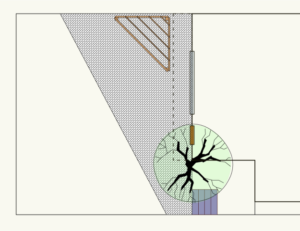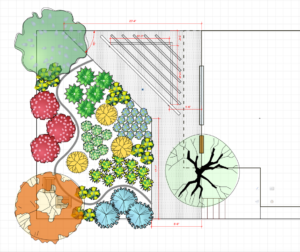Another of the unpublished pieces. I found second homes for many of them, eventually, so only a handful remain unseen.
Certain moments of history are forged into our brains.
The memory of Richard III has been given to us by Shakespeare: the warped king. It has been left to us by Millais in his pitiful painting of the Princes in the Tower: the murderous uncle. These judgements have been contested strongly by Richard’s supporters, who see him as a good man. However he is judged and however he is remembered, he was a human being. And all human beings have happy moments in their lives.
One moment of joy we do have for Richard, saved despite the loss of records over time, despite the fact that the Tudors hated him, saved despite the fact that in the fifteenth century less was written down that we would write today. We have a menu.
We know what was served to Richard the day he was crowned king.
So let us surreptitiously reach back to a moment when Richard was new to his throne, his nephews were very alive, and all was well with the world. Even Richard’s worst enemies were given roles of dignity and worth.
The banquet was formal and glorious: the food did not stand alone. There was panoply and display and glory. The King’s Champion would have paid a dramatic visit, for instance. The doors of Westminster flung wide open to admit him and his small procession. The Champion was a-horseback and beautifully armed. He threw down his gauntlet to announce his challenge. The food would have been spiced with moments such as this.
The menu itself was sumptuous. Three courses for Richard, two for his nobles dining elsewhere and one course for everyone else. There were too many people to fit into the Great Hall, and the celebrations spilled over into its surrounds. It took a lot of food to serve 1200 people. In fact, it took 30 bulls 12 fatted pigs, 6 boars, 140 sheep, 400 lampreys, 350 pikes, 100 trout and so on. The cooks dealt with 2200 chickens (of various types), 1,000 geese, and 800 rabbits. The luxury food was less excessive, with only forty eight peacocks.
The first course was full of fowl, from pheasant and cygnet to crane and capon. There was some meat (beef and mutton, for instance) and a little fish. Any of these might have had sauces for dipping, and these sauces could have been anything from sharp orange to a condiment made from sweet currants. For those who liked gentler foods, there was a custard (although we do not know if it was sweet or savoury) and a thick soup. Crunchy battered fritters provided a sharp contrast in texture.
The second course also featured roast meat. Roast meat is still for many people the food of celebration, and the number and generosity of the meats at Richard’s banquet shows that it was a very special occasion indeed. Not all the meats in the second course were roasts, however. A delectable cold savoury jelly done up with a “device”(maybe a boar or a crown?) trapped the eye in its quivery midst. A peacock was cooked, and then its feathers were refitted and it was presented as if it were alive. Venison pieces were served stuffed, and fish was baked whole. The third course was similar, but with a few sweet dishes added to the mix. You can imagine the king nibbling at baked quinces or cinnamon custard, eating more of his favourite dishes, and called up his best friends and good servants to taste something delectable from his plate.
When all the flavours became overwhelming and mingled in the mouth, there were always bread and wafers and sweet nibbles.
With each course, a subtlety was served forth. Not just one, but a special one for the king and his companions and another for the nobles. Subtleties were grand displays – sometimes they were to eat, and sometimes they were simply to admire. Sometimes they were a prank, and sometimes they were deadly serious. The menu from Richard’s coronation banquet doesn’t tell us what the subtleties were, so our dreams are left to roam the possibilities. There might have been a castle, or a pastry boar, or a religious scenes spun of fine sugar. Each one of these would have been brought in with some display and served with great panache.
What did the nobles eat for their two courses? Deep pies and elegant pastries, full to the brim with meats in fabulous sauces. Gilded meats, with egg yolk giving a thin, fragrant crust to a roast chicken and turning it to pure gold. The meats were not all the same as those for the King, but they were varied, and the meat dishes were created to tantalise the palate. The cooks served rabbits served, and pike and veal and capons and geese and beef and mutton. Servers brought forth glorious swans and porpoises – certainly not everyday fare.
This food was fragrant and exotic with the spices of the world. English saffron gave dishes a subtle scent and a beautiful golden colour. A darker brown was given by saunders (a type of sandalwood) and alkanet brought out the reds and browns of the rich dishes. Several types of pepper were used, from the hot pepper we use today to the more complex flavours of grains of paradise and long pepper.
Almond would have subtly fragranced many dishes, with almond milk used in sauces and custards and sweets. Almond was not the only ingredient to make dishes rich and tasty – cheese and cream and butter and milk were all used in vast amounts in the kitchen. So were onions and fresh herbs. Each of these flavourings and colours would have been chosen carefully to make the most of the dish, to make it good to look on, to turn it into something both fragrant and delicious. This was, after all, a banquet for a king.
Delicate baskets were bought to serve food in, and strawberries, dates, oranges, figs, pomegranates, lemons and other fruit sat in the kitchen in enormous piles until they were demolished to feed the guests. Honey sweetened dishes, as did green ginger syrup and sugar. Gold leaf was bought to delicately decorate and rosewater to scent. There was so much rosewater bought in for the cooks to use that it would have been inevitable that a maid would spill some by accident. From that moment on an aura of roses would have permeated the kitchen.
Confectionery was made specially, and specialists created wafers for the notables to nibble along with their spiced wine when all the food was finished.
It was a very merry coronation – a great amount of happiness and and even greater amount of drink. There was some spiced wine for after the meal, but here were also nine tuns of table wine. And this is only the wine used for drinking – there was more wine in the food! A very merry occasion indeed, and a sumptuous start to a reign.


 Biblio Press, 1988). Posthaste, I ordered a copy of the book and then pored through it. The chapters were short, more summations than in-depth histories. Although quite a few of them piqued my interest, only one suggested a story, that of Dona Gracia Nasi. The section began:
Biblio Press, 1988). Posthaste, I ordered a copy of the book and then pored through it. The chapters were short, more summations than in-depth histories. Although quite a few of them piqued my interest, only one suggested a story, that of Dona Gracia Nasi. The section began:
 Twenty odd years ago, when we moved to San Francisco from New York, we bought a house. That flat statement doesn’t reflect the year of living in a rented flat, looking for a house that 1) met our inscrutable criteria for size, price, amenities (this above all: a garage!), proximity to public transport, and some degree of walkability. We were unbelievably fortunate that we sold our NYC apartment for enough to give us a competitive down payment, even in SF (which was then in a wave of utter insanity, real estate-wise). Still, what we wound up with was not one of the gorgeous Victorians with which San Francisco is blessed, but a modest two-bedroom house with a semi-finished attic which would do as a third bedroom, a garage, and a rather feral back yard. Over the years we have made improvements (a workable kitchen which is still my delight; new furnace, new water heater, new bathroom). And this week we started on a massive project: new back yard.
Twenty odd years ago, when we moved to San Francisco from New York, we bought a house. That flat statement doesn’t reflect the year of living in a rented flat, looking for a house that 1) met our inscrutable criteria for size, price, amenities (this above all: a garage!), proximity to public transport, and some degree of walkability. We were unbelievably fortunate that we sold our NYC apartment for enough to give us a competitive down payment, even in SF (which was then in a wave of utter insanity, real estate-wise). Still, what we wound up with was not one of the gorgeous Victorians with which San Francisco is blessed, but a modest two-bedroom house with a semi-finished attic which would do as a third bedroom, a garage, and a rather feral back yard. Over the years we have made improvements (a workable kitchen which is still my delight; new furnace, new water heater, new bathroom). And this week we started on a massive project: new back yard. I have to say, both Danny and I found it hard to really wrap our heads around this as a “here’s what you’ll wind up with” model until we went out back (stepping carefully around the debris) and paced things out. Then we gave the designer some feedback, he made adjustments, and proceeded to send back an image with a rough planting plan thrown in. This time (maybe because there’s some color) I felt more comfortable. There’s a secondary seating area (in the lower left corner) and a “path” among the plantings.
I have to say, both Danny and I found it hard to really wrap our heads around this as a “here’s what you’ll wind up with” model until we went out back (stepping carefully around the debris) and paced things out. Then we gave the designer some feedback, he made adjustments, and proceeded to send back an image with a rough planting plan thrown in. This time (maybe because there’s some color) I felt more comfortable. There’s a secondary seating area (in the lower left corner) and a “path” among the plantings.